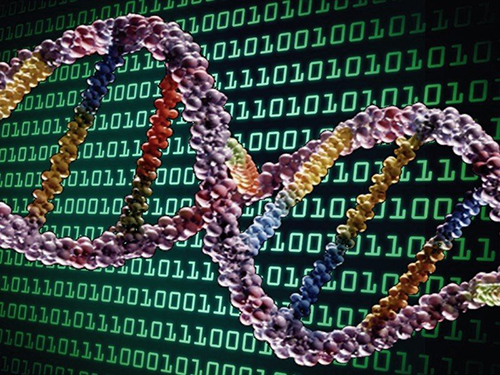
I t
is one of the most iconic speeches of all time, and now it has been
immortalised in a very unusual way. A snippet of Martin Luther King's 1963
"I have a dream" speech has been stored in the alphabet of DNA.
t
is one of the most iconic speeches of all time, and now it has been
immortalised in a very unusual way. A snippet of Martin Luther King's 1963
"I have a dream" speech has been stored in the alphabet of DNA.
Nick
Goldman at the European Bioinformatics Institute in Hinxton, UK, and
colleagues synthesised DNA to encode an eclectic mix of information in its
adenine, thymine, cytosine and guanine components. They used these
"letters" to record an audio file of 26 seconds of King's speech, all
154 of Shakespeare's sonnets, a digital photo of their laboratory and the famous
paper in which James Watson and Francis Crick first described
the double-helical structure of DNA.
The
team built on previous DNA-encoding techniques by adding error correction, allowing
content to be retrieved with 100 per cent accuracy.

 Previous page
Previous page Back to top
Back to top







